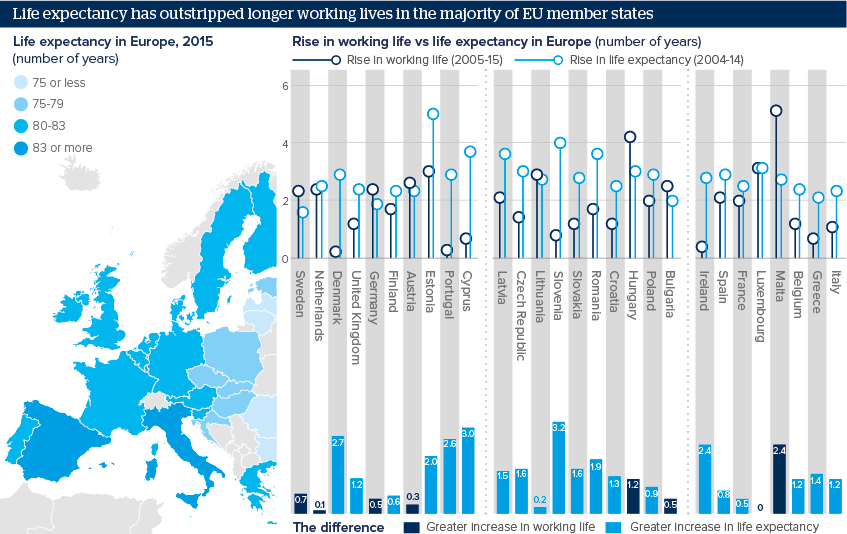Europeans work longer but also live longer
An aspect of Europe's demographic crisis is that years in work are rising but life expectancy is rising even more
Source: Eurostat
Outlook
The average expected working life in the EU has risen by 1.9 years during 2005-15, to 35.4 years. However, life expectancy in the period 2004-14 (the last year for which we have data), rose by 2.5 years to 80.9 across the EU. Since pensions, however funded, depend on people working, this suggests a growing shortfall.
Swedes work the longest -- 41.2 years in 2015. They rank fourth for life expectancy (82.3 years); a long working life matches a long-lived life. However, Italians, whose working lives are the shortest (30.7 years), rank second for life expectancy (83.2 years); their relatively brief working lives support even longer periods in retirement. Yet there seems no urgency: Italians' working lives have risen by just 1.1 years since 2005; in Sweden, that figure is 2.3.
Impacts
- Greeks work for 32.3 years, the third-shortest in the EU, while ranking 10th for life expectancy (81.5 years), straining the pension system.
- Greece like Italy is falling behind: working lives have risen by just 0.7 years, while life expectancy has risen by 2.1 years.
- In most of northern Europe, working lives are longer (average 38.1) and often exceed or keep abreast of rising life expectancy.
- Ex-communists began with shorter working lives, have increased them the most, but longer life expectancy has in most cases outstripped that.
